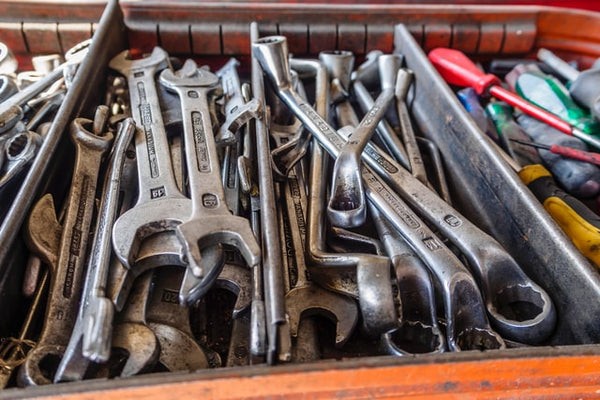Maintaining your car doesn’t have to be a daunting task reserved for professionals. With the right tools and a little knowledge, you can perform many maintenance tasks yourself, saving money and ensuring your vehicle runs smoothly. This comprehensive guide will equip you with the knowledge and tools you need to become a confident DIY mechanic. This article explores the essential tools for car maintenance, empowering you to tackle various tasks with confidence.
Essential Car Maintenance Tools: Building Your Toolkit
A well-stocked toolkit is the foundation of successful car maintenance. Here are some must-have tools for every DIY mechanic:
1. Socket Sets: The Cornerstone of Your Arsenal
Socket sets are indispensable for any car maintenance project. A comprehensive set should include both standard (SAE) and metric sizes, along with various drive sizes (1/4″, 3/8″, and 1/2″). Thin-walled sockets are invaluable for delicate work in tight spaces.
2. Pliers and Wire Cutters: Versatile Essentials
Pliers and wire cutters are frequently used for electrical work, hose clamping, and various other tasks. A comprehensive plier set should include diagonal wire cutters, slip-joint pliers, needle-nose pliers, and groove-joint pliers.
3. Combination Wrench Set: Reaching Tight Spots
While socket sets are versatile, combination wrenches provide the necessary leverage and access for nuts and bolts in confined areas. Invest in a set that includes a range of both standard and metric sizes.
4. Screwdrivers: Precision and Versatility
A comprehensive screwdriver set with various sizes and types (Phillips, flathead, Torx) is essential for working with different screws and fasteners. Ratcheting screwdrivers can significantly speed up the process.
5. Zip Ties: Keeping Things Organized
Zip ties are invaluable for bundling wires and cables, keeping your workspace tidy and preventing entanglement during maintenance.
6. Tire Pressure Gauge: Ensuring Optimal Performance
Maintaining proper tire pressure is crucial for fuel efficiency, tire longevity, and safe handling. A reliable tire pressure gauge helps you monitor and adjust tire pressure accurately.
7. Duct Tape: The Temporary Fix-All
Duct tape is a versatile tool for temporary repairs, securing loose components, and even patching minor body damage in emergencies.
8. Jumper Cables: A Lifesaver for Dead Batteries
Jumper cables are essential for jump-starting a car with a dead battery, ensuring you’re never stranded. Choose heavy-duty cables with strong clamps for reliable performance.
9. Lubricants and Penetrating Oil: Keeping Things Moving
Penetrating oil helps loosen rusted or seized bolts, while lubricants keep moving parts functioning smoothly. These are essential for various maintenance tasks.
10. Breaker Bar: Unleashing Extra Leverage
A breaker bar provides the necessary leverage to loosen stubborn lug nuts or tightly fastened bolts that resist conventional wrenches.
11. Latex Gloves: Protecting Your Hands
Latex gloves keep your hands clean and protected from grease, grime, and chemicals during maintenance tasks.
Beyond the Basics: Expanding Your Skillset
As you gain experience, consider expanding your toolkit and knowledge to tackle more complex tasks. Learning about car mechanics, diagnostic techniques, and problem-solving strategies will empower you to perform more advanced maintenance and repairs.
Conclusion: Empowering the DIY Mechanic
With the right tools and a willingness to learn, you can confidently perform many car maintenance tasks yourself. Start with the essential tools outlined in this guide and gradually expand your toolkit and knowledge as you become more comfortable. Regular maintenance will not only save you money but also ensure your vehicle remains reliable and safe for years to come.

